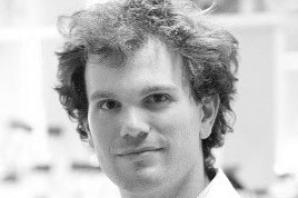Putting the CRISPR back in bacteria
CRISPR is a widely used molecular biology tool exploiting an immune process discovered in bacteria. Dr David Bikard studies CRISPR in bacterial cells, in conjunction with different DNA repair systems, to create even newer tools. He hopes to gain insight into bacterial genetics, and develop increasingly effective medical treatments.
In 2015, CRISPR, a tool that allows for the “editing” of genes in target cells, was elected “Scientific Discovery of the Year”. Undoubtedly, it has contributed greatly to fields ranging from medical microbiology to crop science. CRISPR systems contain programmable DNA scissors, known as Cas proteins, that can be used to cut specific target genes. The DNA repair systems of eukaryotic cells – cells like ours or like those of animals and plants – can then be used to repair the break, allowing for the incorporation of precise modifications. Originally though, CRISPR evolved as a form of immunity to capture and destroy invasive DNA, such as that of viruses, in bacteria and other unicellular organisms.
Funded by the ERC, Dr Bikard studies CRISPR in the bacterial cells where it all began. In the natural CRISPR immune response, to mend invasive DNA which has been cut out would be rather counter-productive. Bacteria do possess other repair systems though, pushing Dr Bikard to investigate them in conjunction to CRISPR. This will allow him to develop new, efficient tools for bacterial gene editing, thanks to which he hopes to be able to study bacterial genomes on a scale never achieved before.
Dr Bikard’s work could have widespread repercussions. A thorough knowledge of bacterial genetics will help our arms race for better antibiotics, and our fight against deadlier, more resistant pathogens. He is co-founder of the biotech company Eligo Biosciences, where this knowledge will be put to use to develop powerful tools against infection, including potential solutions to poorly understood gut syndromes and other personalised treatments.
David Bikard obtained a degree in Engineering from AgroParisTech and a PhD from Paris Diderot University for his work performed at the Institut Pasteur (France). He then joined the laboratory of Luciano Marraffini at the Rockefeller University to work on CRISPR systems. In 2014, he started his own group at the Institut Pasteur to work on CRISPR systems and their application to better understand and fight pathogenic bacteria. His research is supported by an ERC grant.


